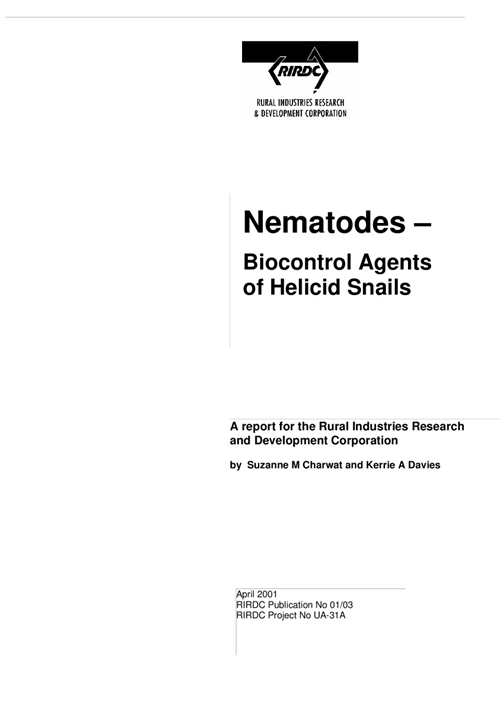Community Trust in Rural Industries: Year 5 National Survey 2024
The Community Trust in Rural Industries (CTRI) program has reached its fifth year, continuing its mission to provide valuable insights into the relationship between Australia’s...

27 pages
Published: 1 Apr 2001
Author(s): Charwat, Suzanne M, Davies, Kerrie A
Download report PDF
DownloadPurchase a hard copy - AUD $45.00
Helicid snails cost the grain industry up to $10 million annually, and present methods of control are based on the combined use of chemical and physical methods. While they keep the snail problem at a manageable level in most cropping situations, they come at a monetary and environmental cost. Biological control would not be cheaper but would provide farmers with an environmentally sound management tool. It would be particularly useful if it attacked breeding snails in the pasture phase of the cereal/pasture rotations in South Australia.
Nematodes have been used successfully as biocontrol agents of various insects pests all over the world. Several reports show that rhabditid (bacterial-feeding) nematodes will attack slugs or snails showed that one of these, Phasmarhabditis hermaphrodita, will attack helicid snails. However, it has not been found in Australia and its optimum temperature appears to be below Australian averages.